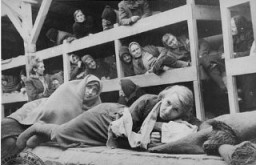You searched for: 专业推特全球粉丝排行榜top100【TG飞机:@bapingseo】谷歌play抖音排名【TG电报:@bapingseo】摩尔多瓦专业谷歌推广引流【Telegram:@bapingseo】乐彩软件安转手机娱网棋牌大连线上从哪买彩票有什么网站可以赌足球比赛?Tr9ULS/lT9gth.html
<< Previous | Displaying results 281-290 of 308 for "专业推特全球粉丝排行榜top100【TG飞机:@bapingseo】谷歌play抖音排名【TG电报:@bapingseo】摩尔多瓦专业谷歌推广引流【Telegram:@bapingseo】乐彩软件安转手机娱网棋牌大连线上从哪买彩票有什么网站可以赌足球比赛?Tr9ULS/lT9gth.html" | Next >>
-
David Stoliar describes engine troubles experienced by the Struma upon leaving Constanta, Romania
Oral HistoryIn 1936, David moved to Bucharest to live with his father. As Romania came under German influence, Romanian authorities introduced increasingly harsh measures against Jews. Antisemitic agitation increased and Jews came under attack in the streets of Bucharest and in other public places. David's father decided David should leave the country and arranged passage for him to Palestine. In December 1941, David left Romania from Constanta, a port city on the Black Sea, on the Struma, an old cattle boat. The…

-
Flory (Floritza) Jagoda describes seeking refuge in Italy
Oral HistoryFlory was born into a Sephardic Jewish family. When Flory was a young girl, her mother moved to Zagreb with Flory's stepfather; Flory joined them after living with her grandmother for two years. In Zagreb, Flory took music lessons and learned how to play the accordion. Germany and its allies invaded Yugoslavia in April 1941, partitioning the country and establishing a fascist regime under the Ustase (pro-German Croatian nationalists) in Croatia. The Ustasa regime soon imposed anti-Jewish regulations in…
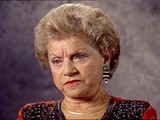
-
Frima L. describes surviving as a young child on her own
Oral HistoryWhile Frima's family was confined to a ghetto, Nazis used her father as an interpreter. He later perished. By pretending not to be Jews, Frima, her mother, and sister escaped a German mobile killing unit massacre. They were later discovered and jailed. Again, her mother devised an escape. Frima's mother and sister were smuggled to Romania, while Frima wandered in search of safekeeping until her mother could arrange to smuggle her out. In Romania, they were reunited and liberated.
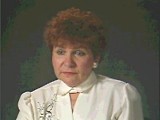
-
Doriane Kurz describes how she and her brother were hidden
Oral HistoryDoriane's Jewish family fled to Amsterdam in 1940, a year that also saw the German occupation of the Netherlands. Her father perished after deportation to Auschwitz. After their mother was seized, Doriane and her brother hid with gentiles. The three were reunited at Bergen-Belsen, where they were deported via Westerbork. They were liberated during the camp's 1945 evacuation. Doriane's mother died of cancer soon after Doriane helped her recover from typhus. Doriane and her brother immigrated to the United…
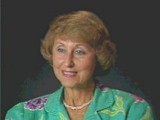
-
Leah Hammerstein Silverstein describes working under a false non-Jewish identity in a German hospital in Krakow
Oral HistoryLeah grew up in Praga, a suburb of Warsaw, Poland. She was active in the Ha-Shomer ha-Tsa'ir Zionist youth movement. Germany invaded Poland in September 1939. Jews were forced to live in the Warsaw ghetto, which the Germans sealed off in November 1940. In the ghetto, Leah lived with a group of Ha-Shomer ha-Tsa'ir members. In September 1941, she and other members of the youth group escaped from the ghetto to a Ha-Shomer ha-Tsa'ir farm in Zarki, near Czestochowa, Poland. In May 1942, Leah became a courier…
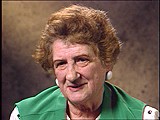
-
Wilek (William) Loew describes the roundup of Jews during August 1942 deportation from Lvov to Belzec
Oral HistoryWilek was the son of Jewish parents living in the southeastern Polish town of Lvov. His family owned and operated a winery that had been in family hands since 1870. Wilek's father died of a heart attack in 1929. Wilek entered secondary school in 1939. Soon after he began school, World War II began with the German invasion of Poland. Lvov was in the part of eastern Poland annexed by the Soviet Union. Although the Soviets took over Wilek's home and the family business, Wilek was able to continue his…
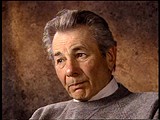
-
Leo Diamantstein describes Nazi marches and the Hitler Youth
Oral HistoryJoseph Leo Diamantstein was born in Heidelberg, Germany, on December 1, 1924, to Jewish parents. He was the youngest of four children. His family experienced antisemitism in Frankfurt, and ultimately decided to leave Germany. Beginning in 1933, the Hitler Youth and the League of German Girls had an important role to play in the new Nazi regime. Through these organizations, the Nazi regime planned to indoctrinate young people with Nazi ideology. This was part of the process of Nazifying German…
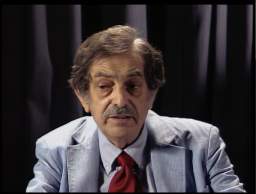
-
Barbara Marton Farkas describes punishment for spilling some food in the Auschwitz camp
Oral HistoryDescribes punishment for spilling some food in the Auschwitz camp
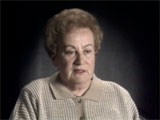
-
Trawniki
ArticleFrom July 1941-May 1944, the SS camp at Trawniki had several purposes. It is best known as the training site for auxiliary police guards used in Nazi killing centers. Learn more.
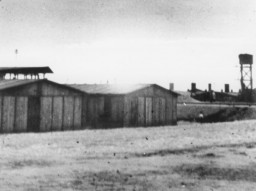
-
Auschwitz
ArticleThe Auschwitz camp system, located in German-occupied Poland, was a complex of 3 camps, including a killing center. Learn about the history of Auschwitz.
